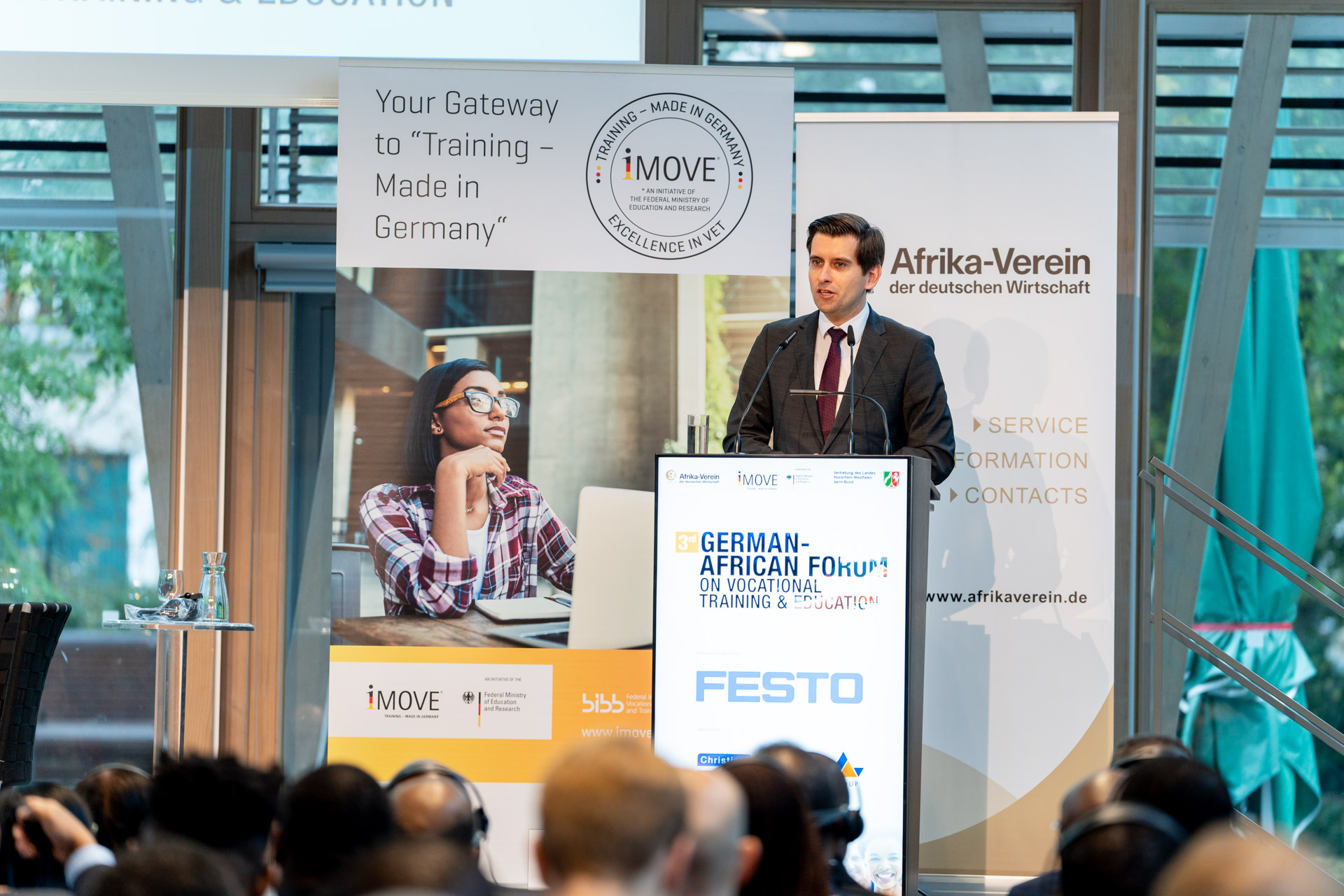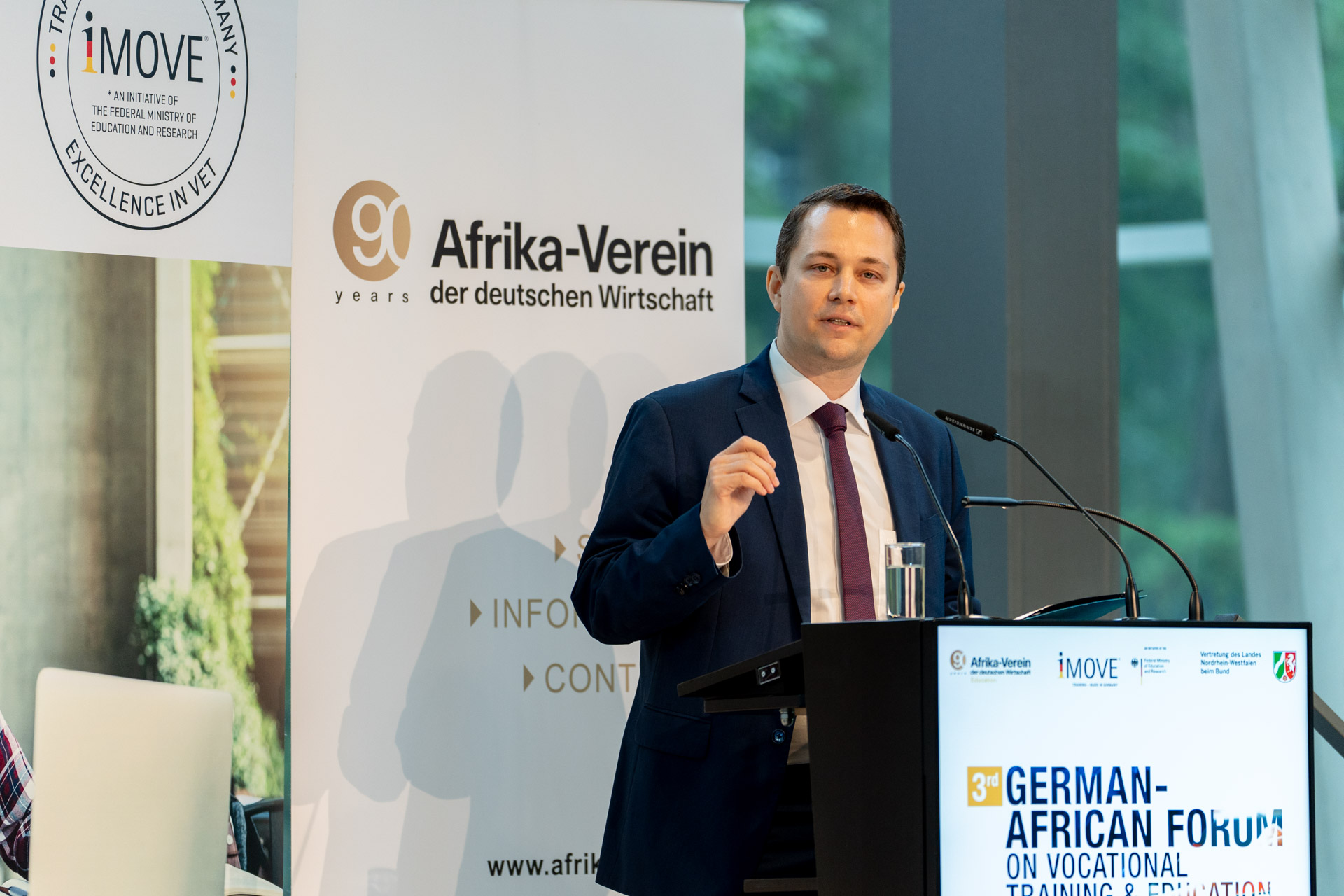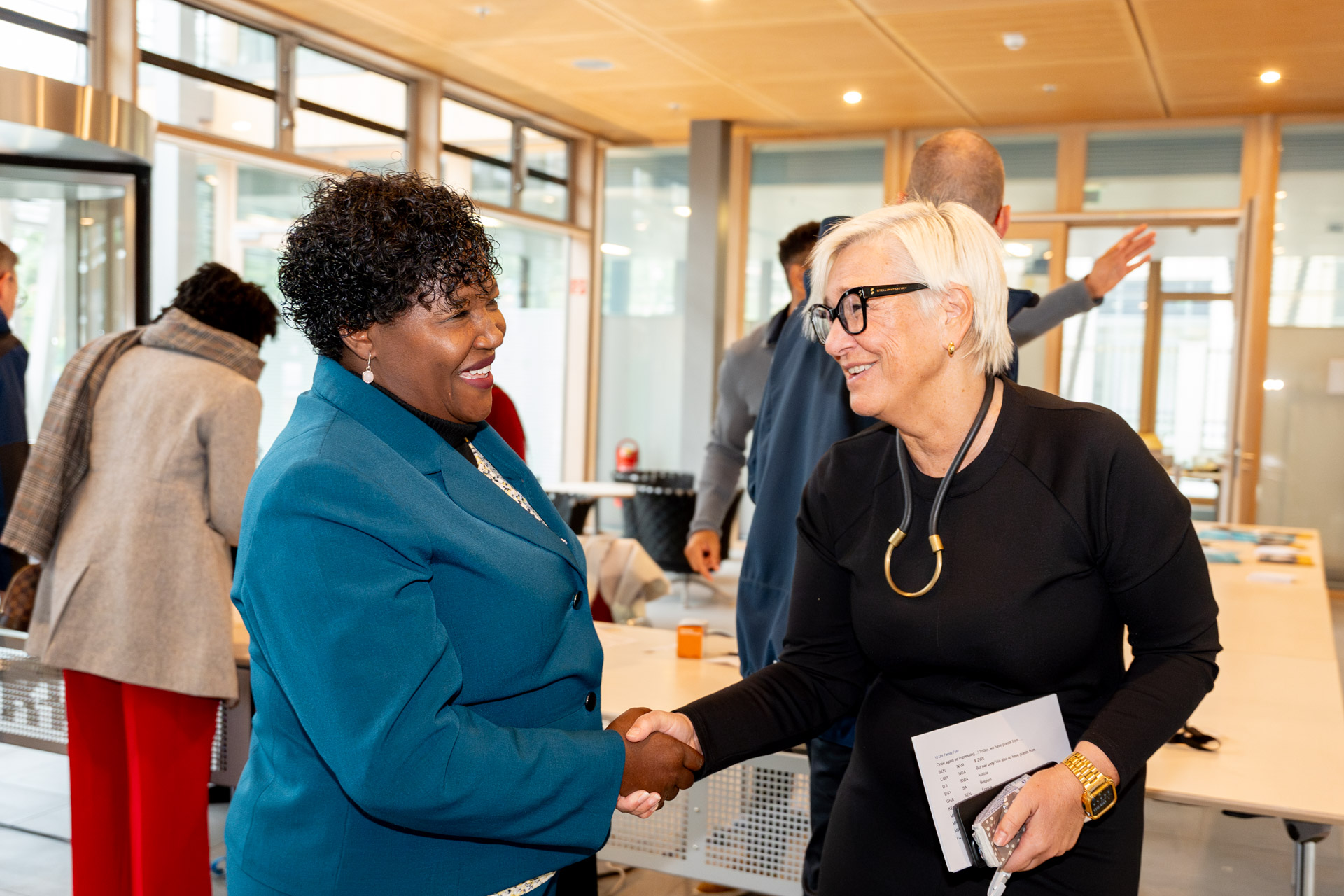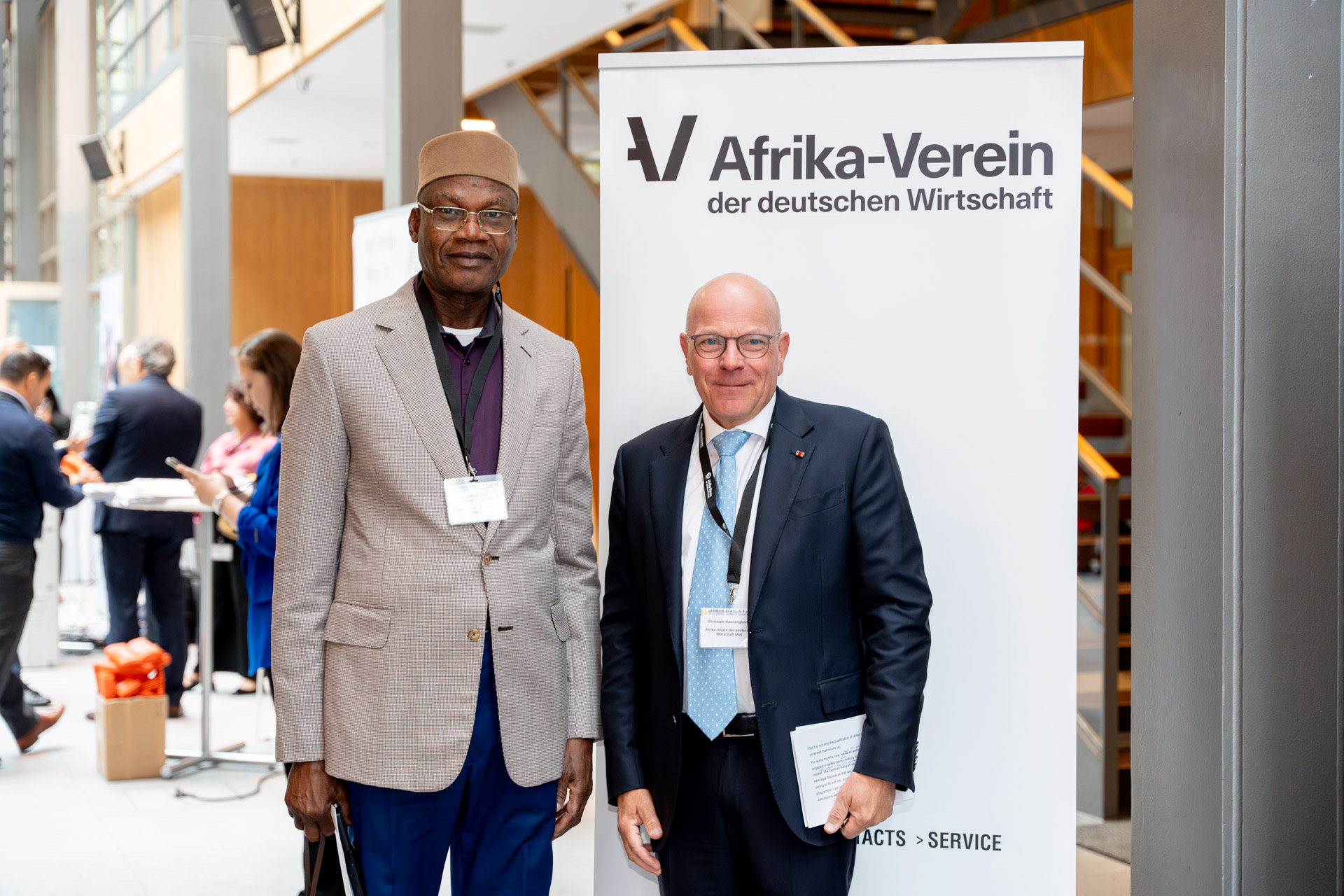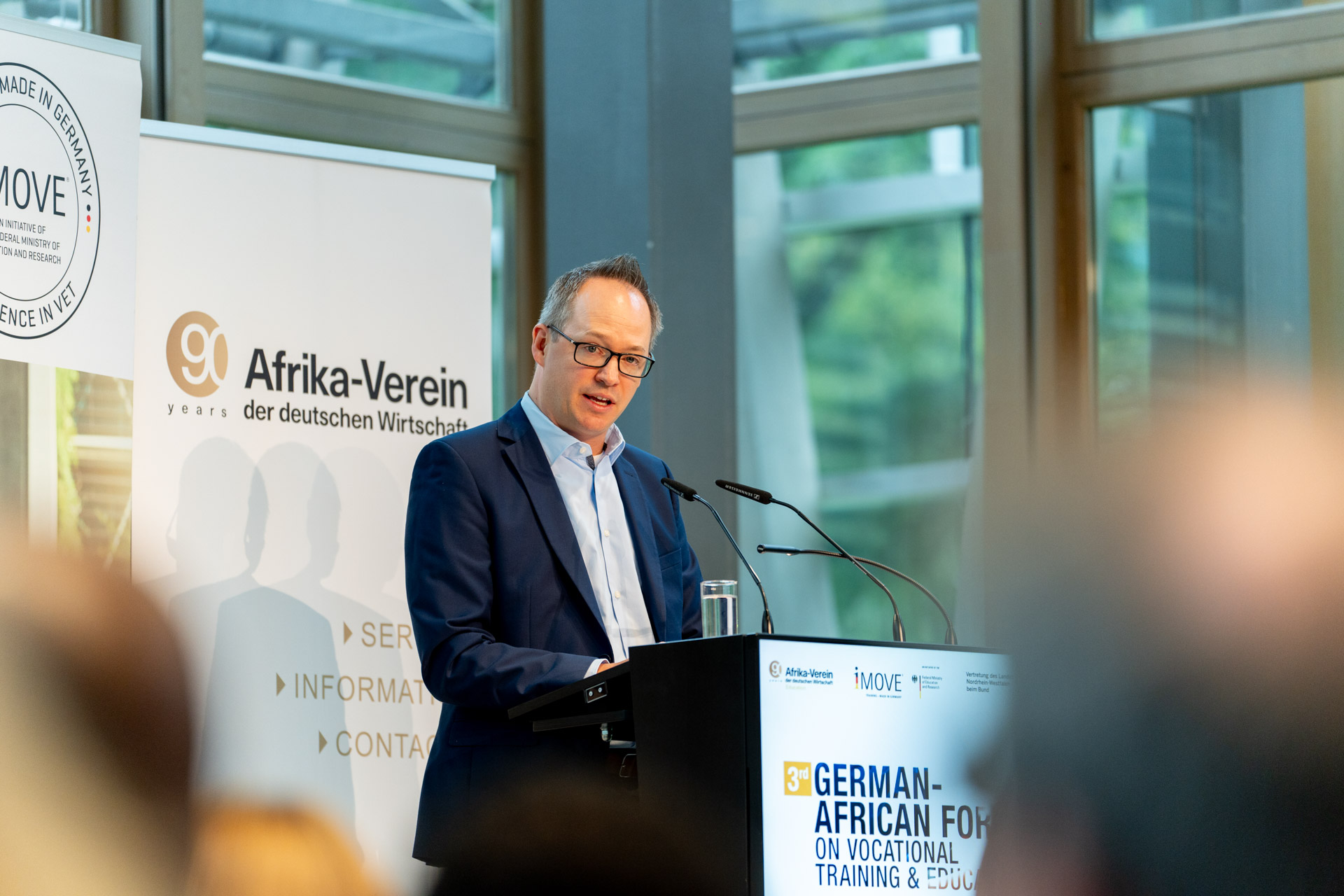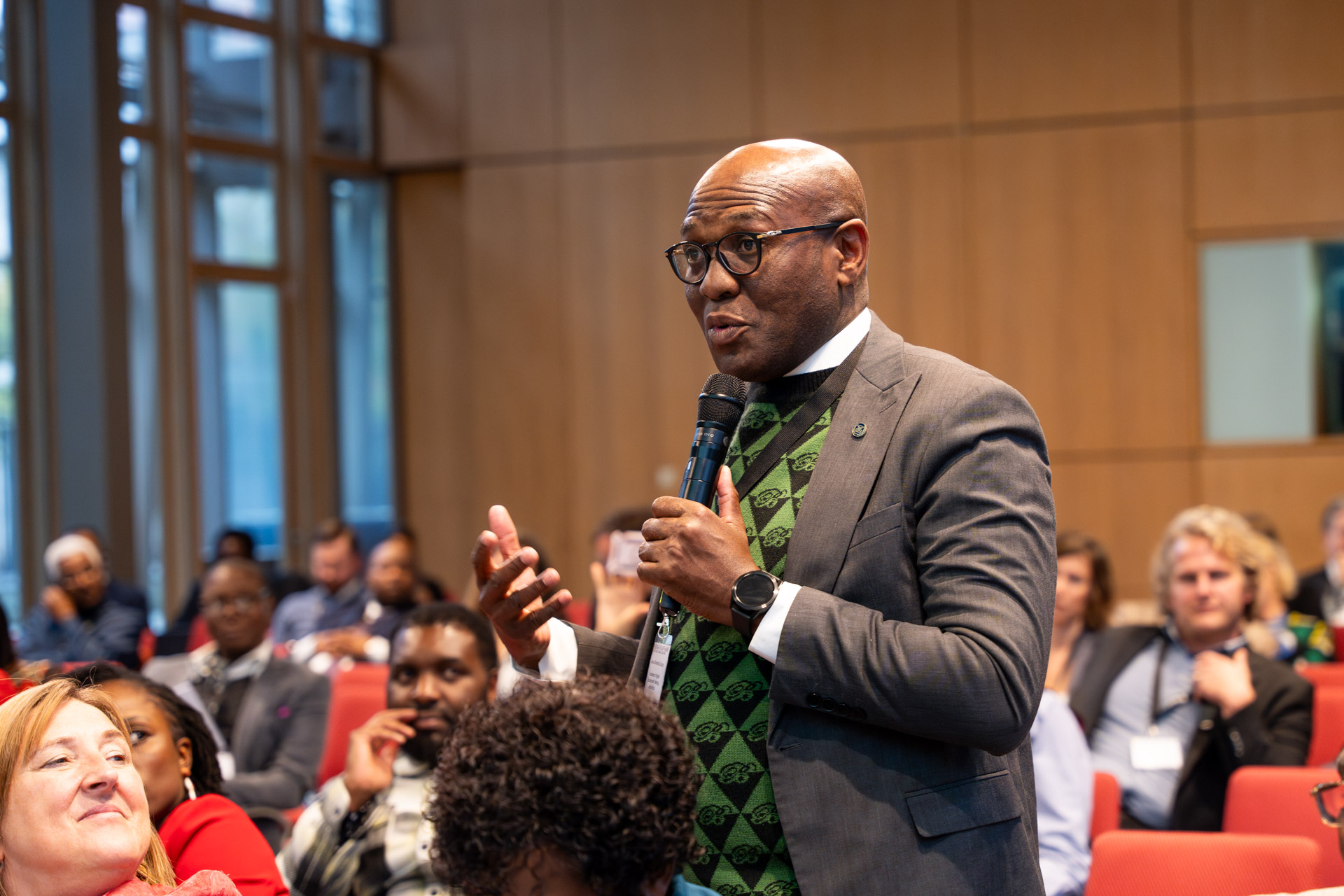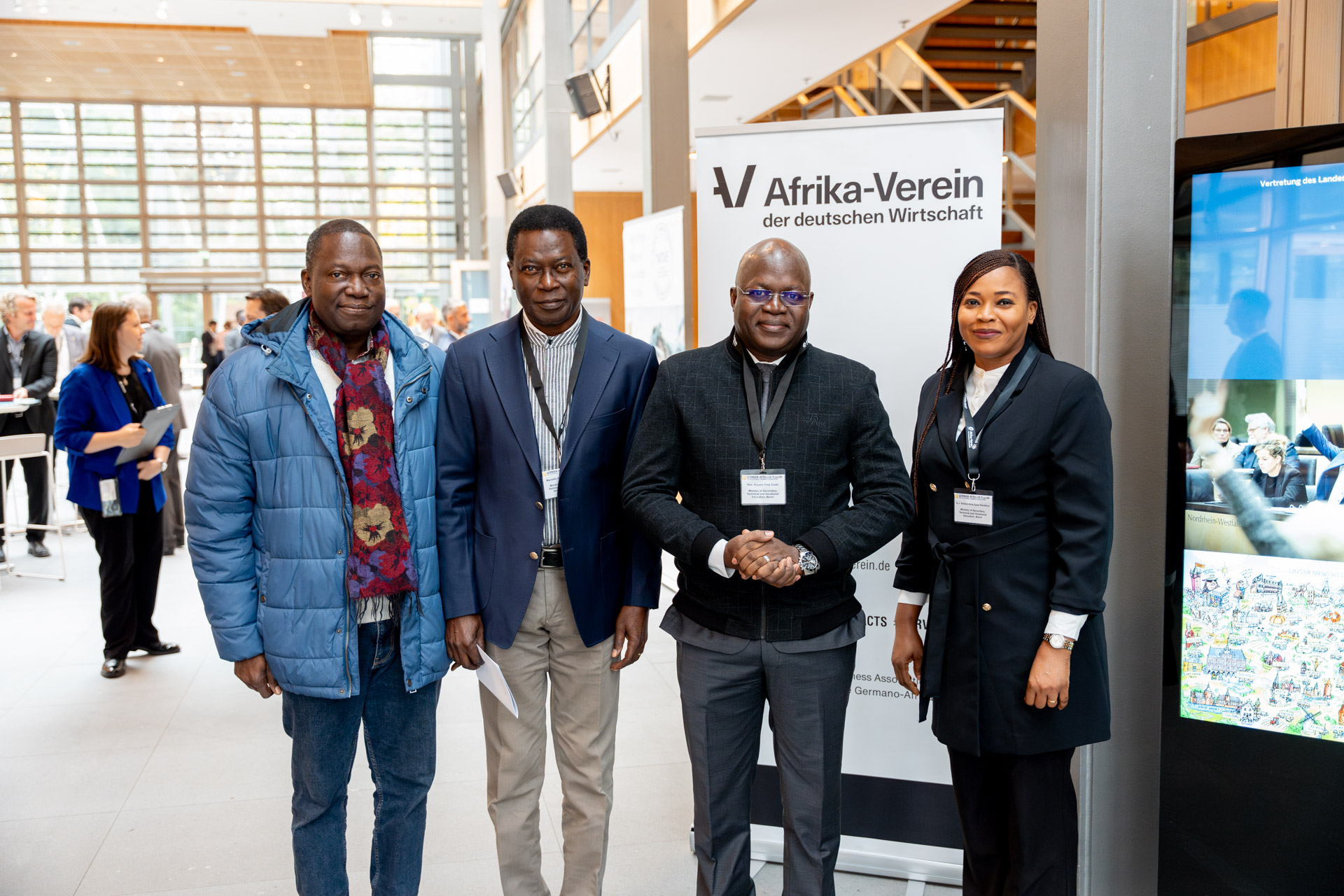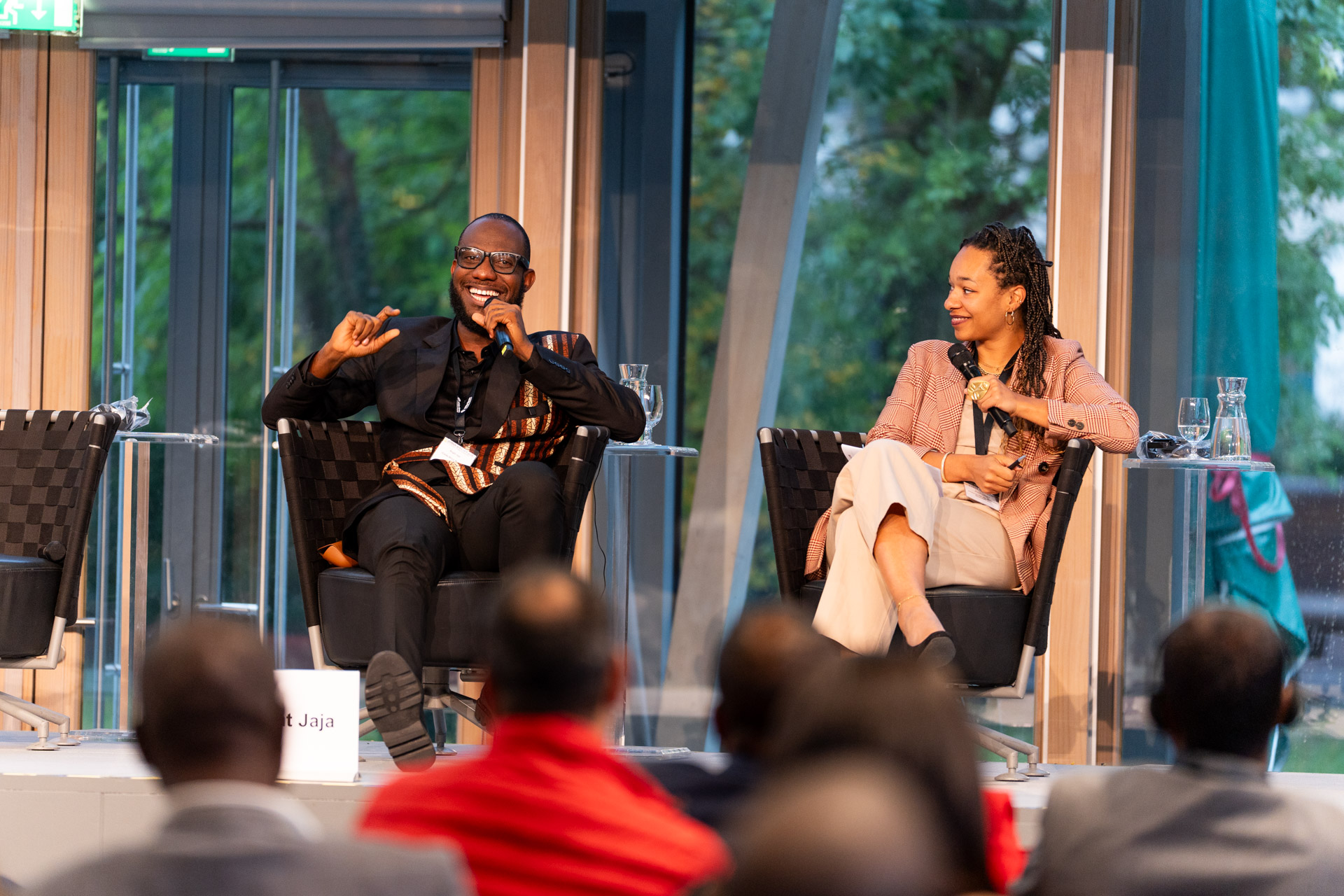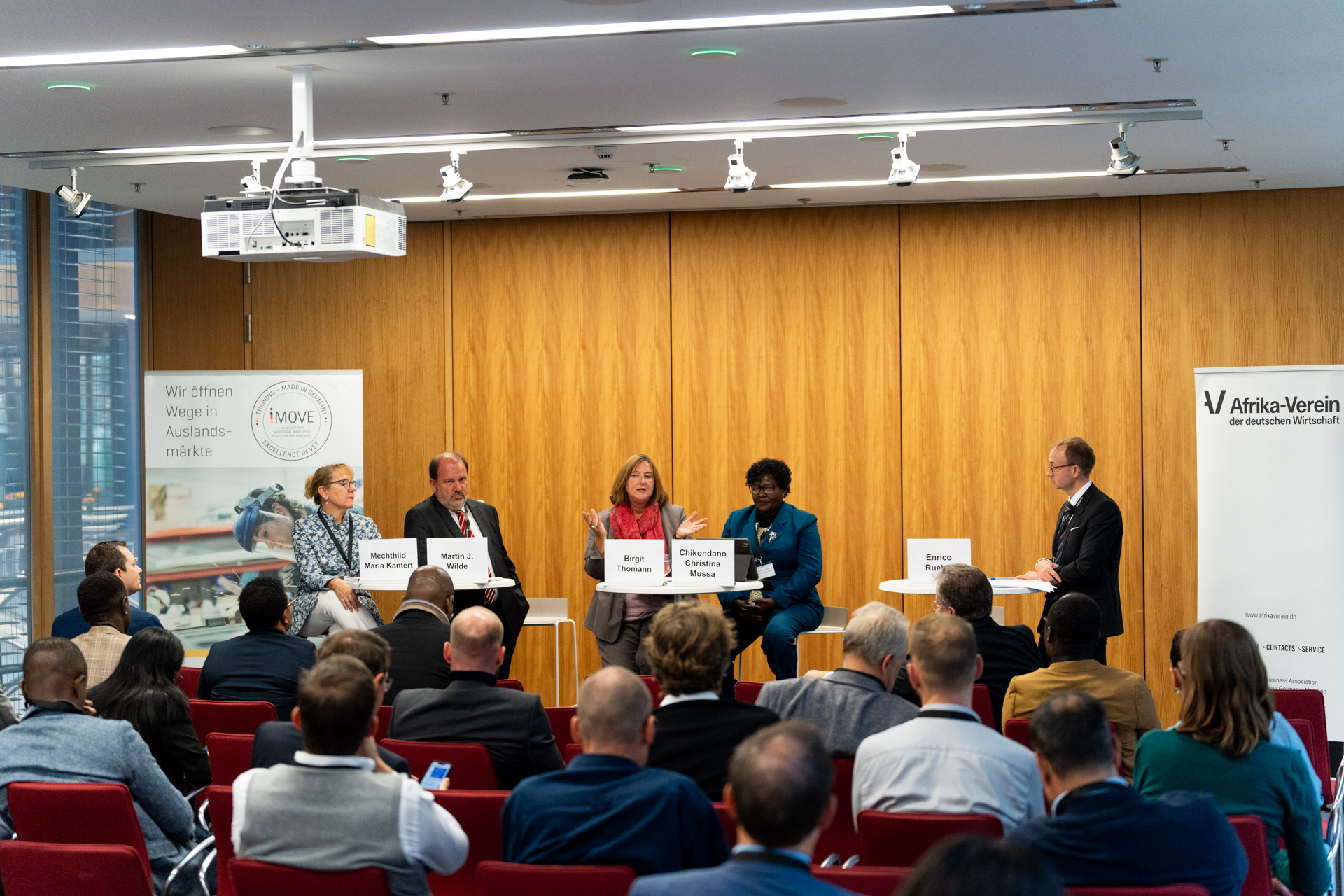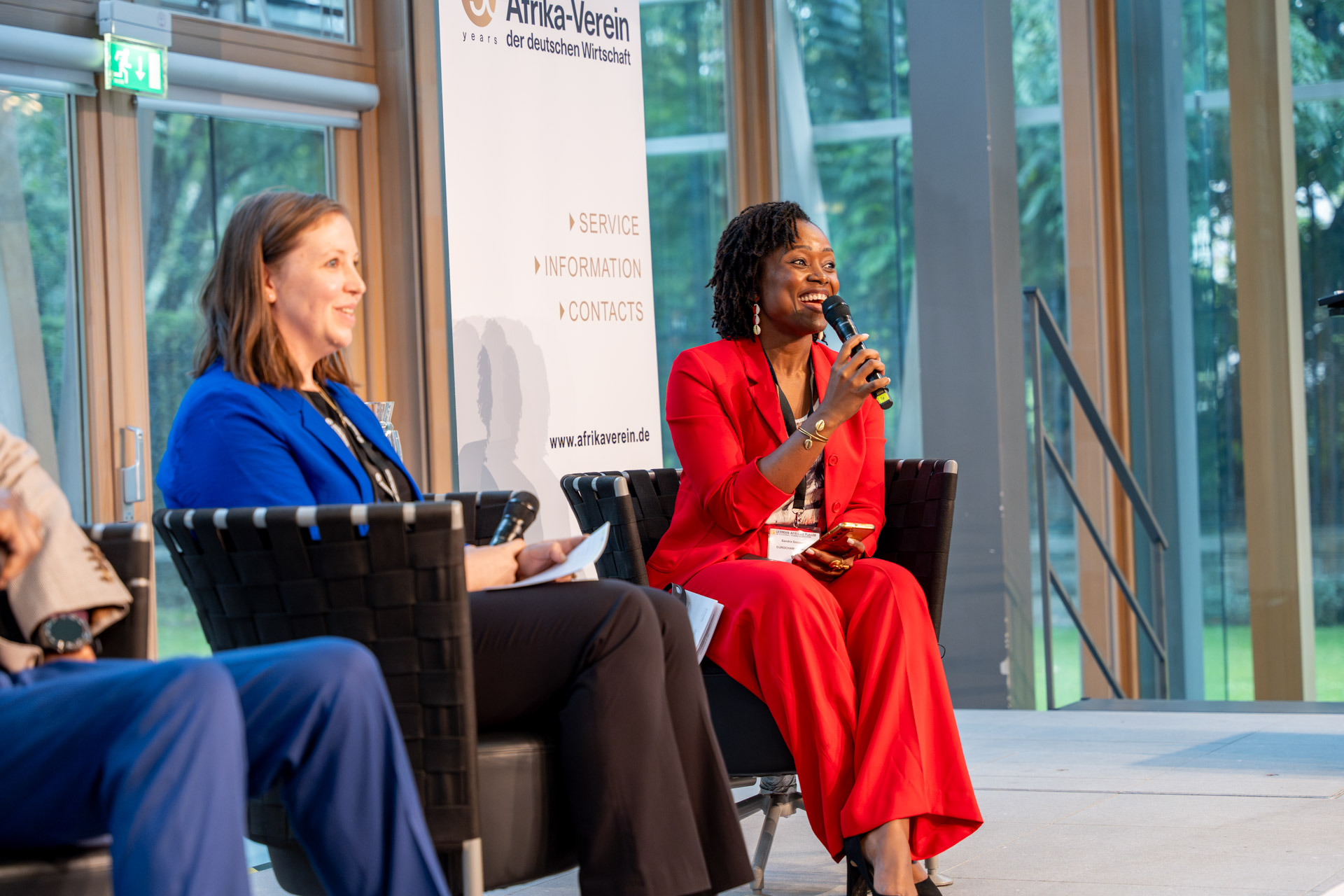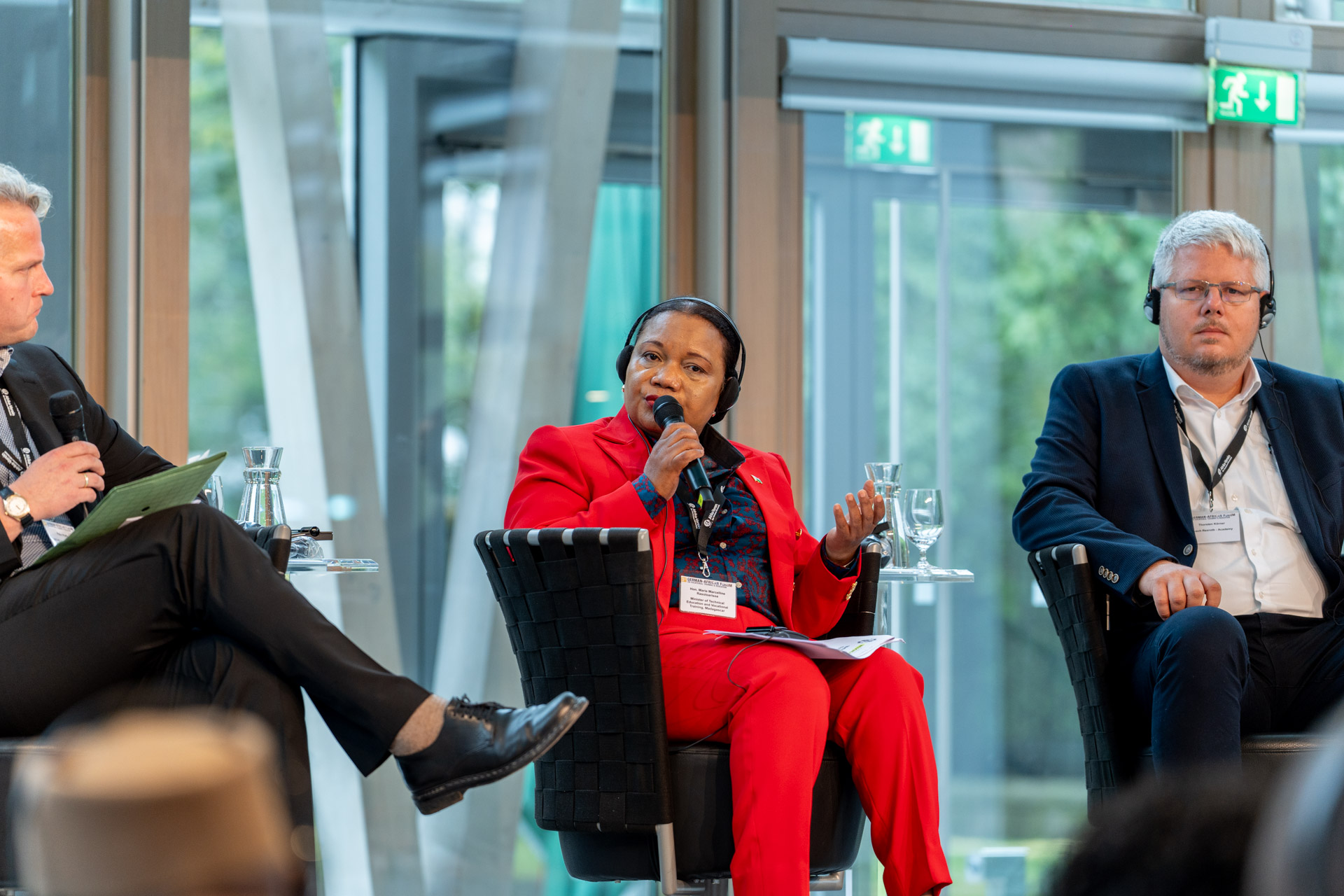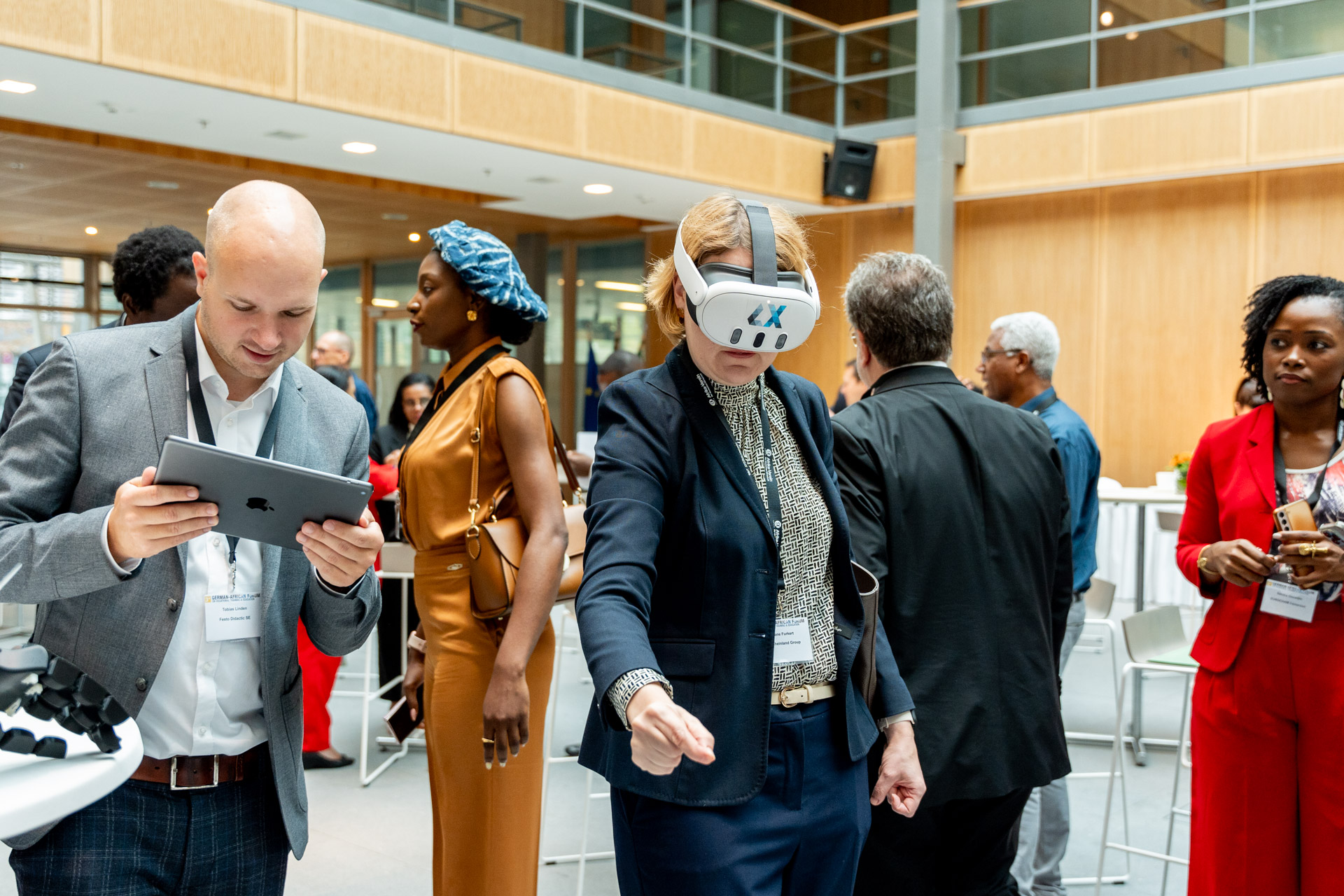3rd German-African Forum on Vocational Training and Education
Under the motto "Boosting future skills and partnerships for sustainable growth", decision-makers from education, business and politics, including the education ministers from Benin, Madagascar and Nigeria, met in Berlin on 2 October 2024 for the "3rd German-African Forum on Vocational Training and Education".
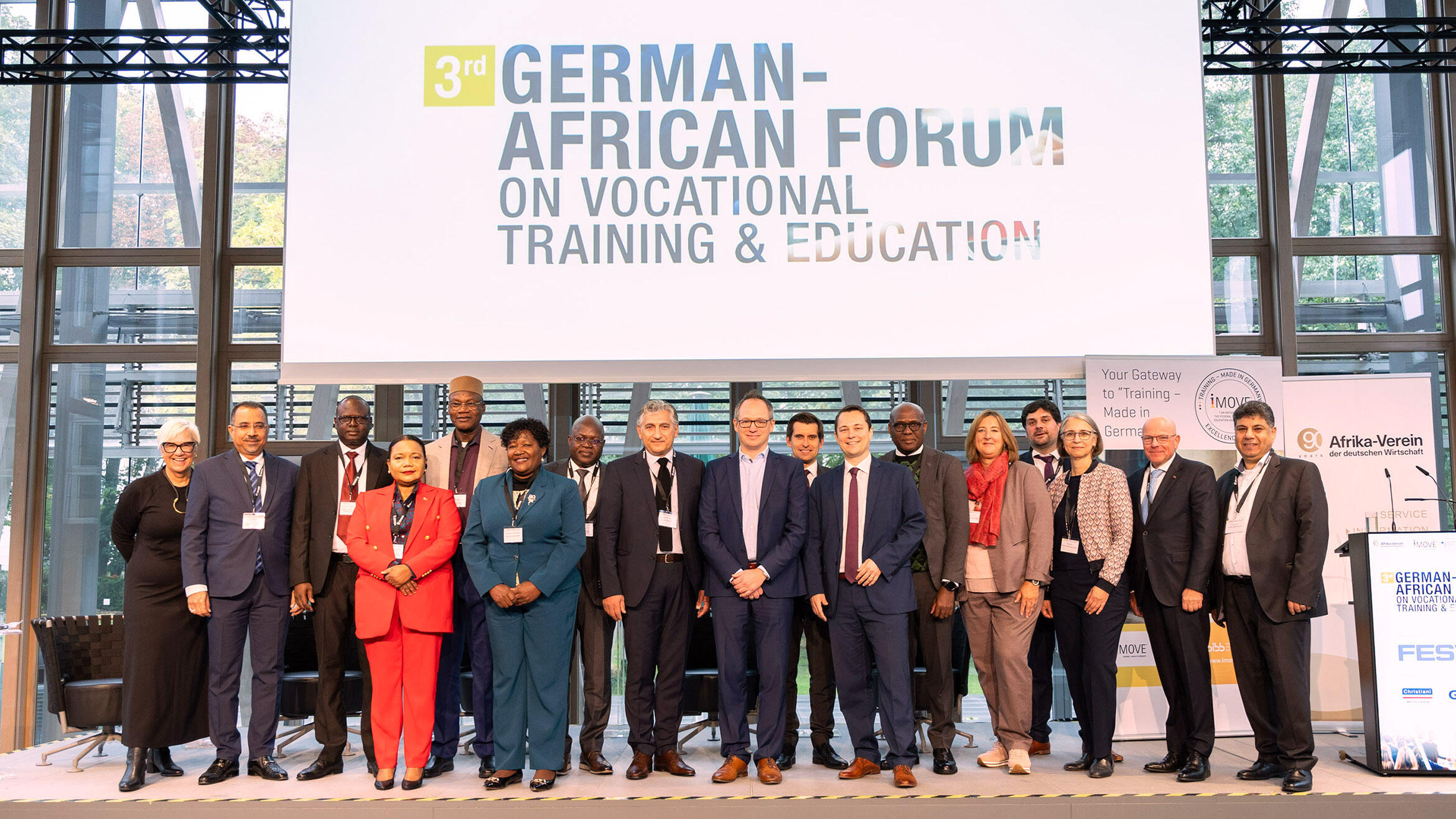
Prior to the conference, iMOVE took the African delegations on a tour of various educational institutions in Berlin. Lively discussions and engaging questions showed that the African guests were very interested in the practical implementation and design of vocational training "Made in Germany".
Platform for German-African cooperation in vocational education and training
At the 3rd German-African Education Forum, participants discussed ways to strengthen vocational education and training and create sustainable partnerships between Germany and Africa.
Organisers iMOVE and the German-African Business Association welcomed around 150 participants at the Representation of the State of North Rhine-Westphalia in Berlin.
Opening remarks were made by the host, Dr Matthias Rossbach, Director of the State of North Rhine-Westphalia, and the co-organisers of the event, Christoph Kannengiesser, CEO of the German-African Business Association, and Dr Andreas Werner, Head of iMOVE. In his speech, Dr Werner emphasised the role of education as a bridge between different regions of the world.
Key topics and discussions
In his keynote address, Dr Roland Philippi, State Secretary at the German Federal Ministry of Education and Research, set the event in the context of current developments in education policy, followed by an inspiring contribution from Bright Jaja, Founder and CEO of iCreate Africa, who provided a young African perspective on the future of vocational education and training.
The panel discussion, entitled 'Bridging the gap - harmonising industrial demands and the educational offer', focused on the role of the private sector in vocational education and training.
Participants from Benin, Djibouti and Germany - including Minister Kouaro Yves Chabi of the Ministry of Secondary Education and Vocational Training in Benin and Dr Norbert Voelker, Managing Director of the Didacta Association - discussed how to better align educational opportunities with labour market needs.
Another highlight of the morning was the panel discussion on renewable energy and hydrogen vocational training in Africa.
Minister Marie Marcelline Rasoloarisoa, from the Ministry of Technical and Vocational Education and Training in Madagascar, stressed the importance of vocational training in Africa's development as a global player in renewable energy. Samuel Zumokuhle Zungu, Deputy Director for Vocational Education and Training at the South African Department of Basic Education, presented the various projects to develop the hydrogen sector in South Africa, emphasising the involvement of the private sector. Together with Dr Heinrich Heinrichs (africrops! GmbH), Fathi Jamal (Dr. Ing. Paul Christiani GmbH) and Thorsten Körner (Bosch Rexroth Academy), they discussed how Africa can exploit its potential in solar and wind energy, agriculture and hydrogen production with the help of innovative solutions from Germany.
Parallel sessions and expert talks
In the afternoon, parallel sessions were held on forward-looking topics of German-African cooperation.
One session focused on future skills requirements in the context of innovation and digitalisation. Participants from Senegal, Cameroon and Germany discussed how digital solutions can promote growth in Africa and Europe and enable new working models.
A second session focused on fair partnerships and models for labour mobility between Germany and Africa. With a shortage of skilled workers in Germany, panelists discussed solutions for building sustainable partnerships while avoiding a brain drain. Birgit Thomann, Head of the International Vocational Training Department at the Federal Institute for Vocational Education and Training, stressed the importance of equal partnerships and the early involvement of all stakeholders in the country of origin and the country of destination. The ensuing discussion was lively and explored the topic from different angles.
Closing discussion and outlook
At the end of the forum, a panel of experts focussed on the financing of education and the need for investment in vocational training.
Professor Tahir Mamman, Minister of Education from Nigeria, Sandra Gouadjio, European Chamber of Commerce (EUROCHAM) Cameroon and Jean-Paul Heerschap from the European Commission discussed new models to promote the employability of future generations.
At the end of the forum, the Nigerian non-profit organisation iCreate Africa presented the TV production 'Skillers - The Builders Show', followed by an interview with filmmaker Bright Jaja. iCreate uses multimedia and innovation to make vocational education and training more attractive in Africa.
Conclusion
The 3rd German-African Education Forum once again provided a valuable platform for exchanging ideas and deepening German-African cooperation in the field of vocational education and training.
The forum provided important impetus for the sustainable development and promotion of future skills.
